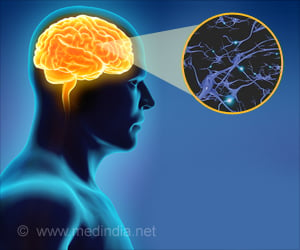Music therapy can address a patient's physical, emotional, cognitive and social needs thereby improving the overall health.
- Music therapy is effective and safe to treat various ailments in people. It especially has a positive effect on an individual’s mental health
- Music helps reduce stress, anxiety and lessens symptoms of depression
Music therapy is evidence-based, effective and safe to treat people who require mental healthcare. However, it needs to be applied by knowledgeable and qualified professionals.
According to sources, a music therapist is a trained medical professional who employs music to address a patient's physical, emotional, cognitive and social needs. Numerous research has shown that music has a wide range of sentimental effects on people.
Benefits of Music Therapy for Overall Mental Health Include:
Reducing stress
After a long day, we like to put in our headphones and listen to our favourite tunes before bed. It helps unwind and makes it easier to fall asleep by lowering stress levels.
Cortisol is a hormone that causes stress, and studies have shown that listening to music lowers cortisol levels. It should therefore come as no surprise that music helps to cure physical and mental health conditions. It is an art that reduces grief.
Reducing anxiety
Endorphins, often known as happy hormones, are released by music, relax the nervous system and lessen the symptoms of worry. Everyone occasionally feels anxious, and this is considered natural. However, for those with anxiety disorders, the frequency and severity of these symptoms are excessive. Since music has a powerful impact on our emotions, it can calm someone down and enhance their emotional capabilities.
Lessening the symptoms of depression
Research shows that music therapy helps in easing the symptoms of depression when combined with other therapies like talking therapy. People's experiences are influenced by both endorphins and dopamine, which are released by music. Additionally, it fosters self-expression, strengthens social ties, and uplifts mood.
Enhancing mental abilities and preventing Alzheimer's
According to sources, music therapy aids in enhancing cognitive capacities and delays the onset of dementia in the elderly. Additionally, it is effective in treating Alzheimer's disease. According to a study, singing or listening to music may have emotional and behavioral benefits for people with Alzheimer's and other types of dementia. Because important brain regions associated with musical memory are unaffected by Alzheimer's disease, musical memories are unchanged by the disorder.
Improving mental health
Many people who battle with mental illness find consolation in music therapy. Attending music therapy can be very beneficial if you or a family member/friend is dealing with anxiety, depression, or low self-esteem. People who listen to music report feeling more at ease, self-assured, and emotionally healed. Music can also support those who have experienced terrible circumstances and help people cope with pressure and stress.
Although it cannot cure mental health disorders, music therapy can be a helpful and enjoyable approach to alleviate the symptoms of many illnesses, such as melancholy, mood swings and anxiety. People can share their thoughts and feelings in a way through music therapy. Because music impacts people's moods and emotions positively, people have been listening to it for a long time. In addition to assisting with mental health issues, music therapy has a wide range of additional advantages, such as offering a creative outlet, enhancing education and cultural awareness, and enhancing cognitive abilities like memory.
Source-Medindia












